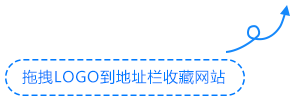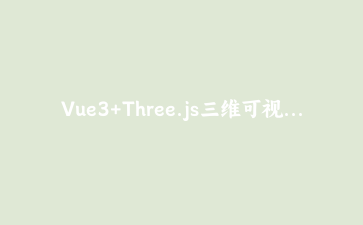免费资源下载

从零构建企业级3D数据可视化平台的完整指南
一、三维可视化技术选型
现代Web三维可视化核心技术对比:
| 技术方案 | 优势 | 适用场景 |
|---|---|---|
| Three.js | 功能全面、社区活跃 | 复杂3D场景、自定义模型 |
| D3.js | 数据驱动、图表丰富 | 2D/3D数据图表 |
| Mapbox GL | 地理信息专业 | 地图可视化 |
| Babylon.js | 游戏引擎特性 | 互动游戏场景 |
二、核心架构设计
1. Vue3与Three.js整合方案
<script setup>
import { ref, onMounted, onUnmounted, watch } from 'vue'
import * as THREE from 'three'
import { OrbitControls } from 'three/examples/jsm/controls/OrbitControls.js'
const canvasRef = ref(null)
const scene = new THREE.Scene()
const renderer = new THREE.WebGLRenderer({ antialias: true })
const camera = new THREE.PerspectiveCamera(75, window.innerWidth / window.innerHeight, 0.1, 1000)
const controls = new OrbitControls(camera, canvasRef.value)
const animateId = ref(null)
// 初始化场景
function initScene() {
// 设置渲染器
renderer.setSize(window.innerWidth, window.innerHeight)
renderer.setPixelRatio(window.devicePixelRatio)
canvasRef.value.appendChild(renderer.domElement)
// 添加光源
const ambientLight = new THREE.AmbientLight(0x404040)
scene.add(ambientLight)
const directionalLight = new THREE.DirectionalLight(0xffffff, 0.5)
directionalLight.position.set(1, 1, 1)
scene.add(directionalLight)
// 设置相机位置
camera.position.z = 5
controls.update()
}
// 动画循环
function animate() {
animateId.value = requestAnimationFrame(animate)
controls.update()
renderer.render(scene, camera)
}
// 响应式数据变化
watch(someReactiveData, (newVal) => {
updateVisualization(newVal)
})
// 组件挂载
onMounted(() => {
initScene()
animate()
})
// 组件卸载
onUnmounted(() => {
cancelAnimationFrame(animateId.value)
controls.dispose()
renderer.dispose()
})
</script>
<template>
<div ref="canvasRef" class="canvas-container"></div>
</template>2. 性能优化架构
数据层 → 可视化组件 → Three.js场景 → WebGL渲染
↑ ↑ ↑ ↑
API接口 状态管理 对象池复用 离屏Canvas
三、高级可视化功能
1. 3D地理信息可视化
async function create3DMap() {
// 加载地理JSON数据
const response = await fetch('/assets/china.json')
const geoJson = await response.json()
// 创建材质
const texture = new THREE.TextureLoader().load('/assets/map-texture.jpg')
const material = new THREE.MeshBasicMaterial({
map: texture,
side: THREE.DoubleSide
})
// 解析GeoJSON并创建3D模型
geoJson.features.forEach(feature => {
const shape = new THREE.Shape()
const geometry = new THREE.ExtrudeGeometry(shape, {
depth: 0.05,
bevelEnabled: false
})
const mesh = new THREE.Mesh(geometry, material)
mesh.userData = feature.properties
scene.add(mesh)
// 添加交互事件
mesh.addEventListener('click', (event) => {
showRegionInfo(event.object.userData)
})
})
}
// 区域信息展示组件
const RegionInfo = {
props: ['data'],
setup(props) {
const stats = computed(() => ({
gdp: props.data.gdp || 0,
population: props.data.population || 0
}))
return { stats }
},
template: `
<div class="info-panel">
<h3>{{ data.name }}</h3>
<div>GDP: {{ stats.gdp }}亿元</div>
<div>人口: {{ stats.population }}万人</div>
</div>
`
}2. 动态数据驱动动画
// 数据可视化组件
const DataVisualization = {
props: ['dataset'],
setup(props) {
const bars = ref([])
watch(() => props.dataset, (newData) => {
updateBars(newData)
}, { deep: true })
function updateBars(data) {
// 使用GSAP实现平滑动画
data.forEach((item, i) => {
gsap.to(bars.value[i].scale, {
y: item.value / 100,
duration: 1,
ease: "power2.out"
})
gsap.to(bars.value[i].material.color, {
r: item.color.r,
g: item.color.g,
b: item.color.b,
duration: 0.5
})
})
}
onMounted(() => {
// 初始化3D柱状图
props.dataset.forEach((item, i) => {
const geometry = new THREE.BoxGeometry(0.8, 1, 0.8)
const material = new THREE.MeshPhongMaterial({
color: new THREE.Color(item.color.r, item.color.g, item.color.b)
})
const bar = new THREE.Mesh(geometry, material)
bar.position.x = i * 1.2 - (props.dataset.length * 0.6)
bar.position.y = 0.5
bar.scale.y = 0.01
scene.add(bar)
bars.value.push(bar)
})
})
return { bars }
}
}四、性能优化策略
1. 对象池技术
class ObjectPool {
constructor(createFn, size = 100) {
this.createFn = createFn
this.pool = []
this.size = size
this.init()
}
init() {
for (let i = 0; i 0) {
return this.pool.pop()
}
return this.createFn()
}
release(obj) {
if (this.pool.length {
const geometry = new THREE.SphereGeometry(0.1, 16, 16)
const material = new THREE.MeshBasicMaterial({ color: 0x00ff00 })
return new THREE.Mesh(geometry, material)
}, 500)
// 获取粒子
const particle = particlePool.acquire()
scene.add(particle)
// 释放粒子
particlePool.release(particle)
scene.remove(particle)2. 按需渲染优化
// 智能渲染控制器
class SmartRenderer {
constructor(renderer, scene, camera) {
this.renderer = renderer
this.scene = scene
this.camera = camera
this.isRendering = false
this.needsUpdate = false
this.animationId = null
}
start() {
if (this.isRendering) return
this.isRendering = true
const renderLoop = () => {
if (this.needsUpdate) {
this.renderer.render(this.scene, this.camera)
this.needsUpdate = false
}
this.animationId = requestAnimationFrame(renderLoop)
}
renderLoop()
}
stop() {
if (!this.isRendering) return
cancelAnimationFrame(this.animationId)
this.isRendering = false
}
requestRender() {
this.needsUpdate = true
}
}
// 在Vue组件中使用
const smartRenderer = new SmartRenderer(renderer, scene, camera)
onMounted(() => {
smartRenderer.start()
})
onUnmounted(() => {
smartRenderer.stop()
})
// 数据变化时请求渲染
watch(data, () => {
updateVisualization()
smartRenderer.requestRender()
})五、实战案例:智慧城市大屏
1. 城市建筑群生成
async function generateCityBuildings() {
// 加载城市区块数据
const response = await fetch('/api/city-zones')
const zones = await response.json()
// 创建建筑群
zones.forEach(zone => {
const group = new THREE.Group()
group.position.set(zone.x, 0, zone.y)
// 根据区域类型设置颜色
const colorMap = {
residential: 0x4a8fd7,
commercial: 0xd74a4a,
industrial: 0x7ed74a
}
// 生成随机建筑
for (let i = 0; i < zone.density * 20; i++) {
const width = Math.random() * 0.3 + 0.2
const depth = Math.random() * 0.3 + 0.2
const height = Math.random() * zone.height * 0.3 + zone.height * 0.7
const geometry = new THREE.BoxGeometry(width, height, depth)
const material = new THREE.MeshPhongMaterial({
color: new THREE.Color(colorMap[zone.type]),
transparent: true,
opacity: 0.9
})
const building = new THREE.Mesh(geometry, material)
building.position.x = (Math.random() - 0.5) * zone.radius
building.position.z = (Math.random() - 0.5) * zone.radius
building.position.y = height / 2
group.add(building)
}
scene.add(group)
})
}2. 实时交通数据可视化
// 交通流线组件
const TrafficFlow = {
props: ['trafficData'],
setup(props) {
const lines = ref([])
const linePool = new ObjectPool(createLine, 1000)
function createLine() {
const material = new THREE.LineBasicMaterial({
color: 0x00ff00,
transparent: true,
opacity: 0.7
})
const geometry = new THREE.BufferGeometry()
return new THREE.Line(geometry, material)
}
watch(() => props.trafficData, (newData) => {
// 释放所有线条到对象池
lines.value.forEach(line => {
scene.remove(line)
linePool.release(line)
})
lines.value = []
// 创建新的交通流线
newData.forEach(flow => {
const line = linePool.acquire()
const points = flow.path.map(p => new THREE.Vector3(p.x, p.y + 0.1, p.z))
line.geometry.setFromPoints(points)
line.material.color.setHex(getColorBySpeed(flow.speed))
scene.add(line)
lines.value.push(line)
})
}, { deep: true })
function getColorBySpeed(speed) {
if (speed > 60) return 0x00ff00 // 绿色: 畅通
if (speed > 30) return 0xffff00 // 黄色: 缓行
return 0xff0000 // 红色: 拥堵
}
return { lines }
}
}




